One of the most popular ingredients used in the cuisine of Telangana and Andhra Pradesh is Gongura or sorrel leaves. Also called Amabada, it is a rich source of vitamin C, iron, folic acid and calcium. Known for its anti-inflammatory and other medicinal properties, Gongura is available in two varieties, the red stemmed one and the green stemmed variety and is used to make chutney, pickle and even dal.
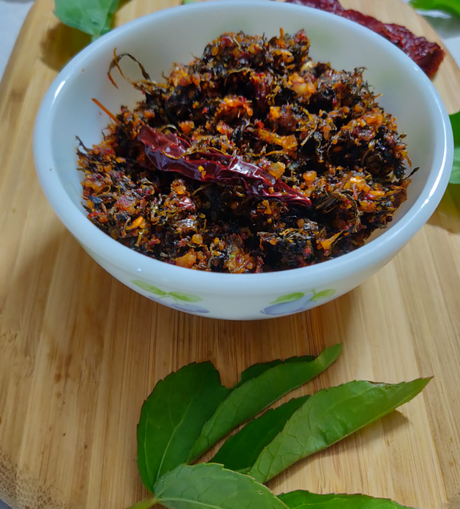 Gongura pachadi
Gongura pachadi
Growing up in Hyderabad, gongura was easily available at the local vegetable market along with other greens like palak and methi. While it is occasionally available in Bangalore, it is not as common. So, recently when I got a big batch of these greens, I was thrilled and tried my hand at gongura pachadi.
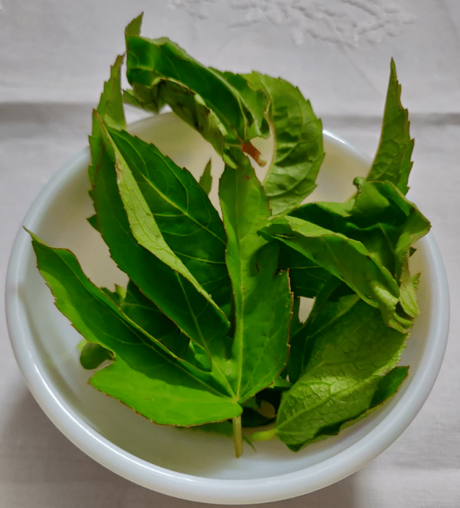
Ingredients:
- Gongura leaves washed and dried: 250 gm
- Green chillies: 2-3
- Red chillies: 1-2
- Onions finely chopped: 4
- Peeled and finely chopped garlic pods: 10-15
- Mustard: 2 tsp
- Jaggery: 2 tsp (optional)
- Oil: 3-4 tbsp
- Salt to taste
To dry roast and grind
- Coriander seeds (Dhania): 2 tbsp
- Bengal gram: 2 tbsp
- Urad dal: 2-3 tbsp
- Cumin seeds: 1 tbsp
- Fenugreek seeds: 1/2 tsp (optional)
- Red chillies: 5-6
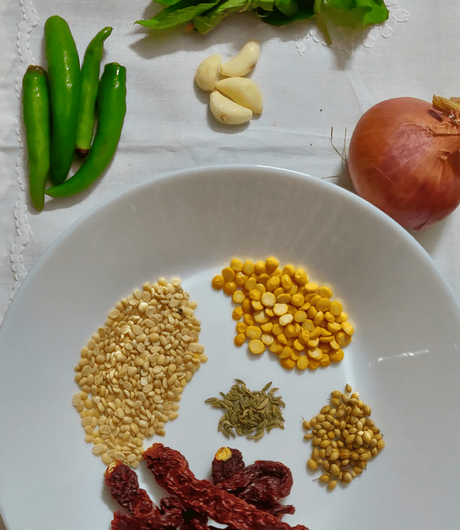
Method:
- Clean and wash the gongura leaves and allow to dry on a towel overnight so that most of the moisture content is lost.
- Dry roast and grind the ingredients mentioned under “to dry roast” into a fine powder.
- Take a large pan and dry fry the gongura leaves along with the greeen chiliies on low flame until the rest of the moisture evaporates. The leaves change color to a dull brown in this process and become aromatic.
- Heat oil in a pan and add mustard seeds. Once they splutter, add the red chilli pieces. Then add finely chopped onions and garlic and fry on low-medium heat till golden brown.
- Add the roasted powder, mix well and fry for some more time. Then add the ground leaves and stir continuously till all the ingredients blend together.
- Drizzle more oil if required. Add salt to taste and jaggery powder.
- Cool and store in an air tight bottle, tastes best with hot rice, dosas and rotis.
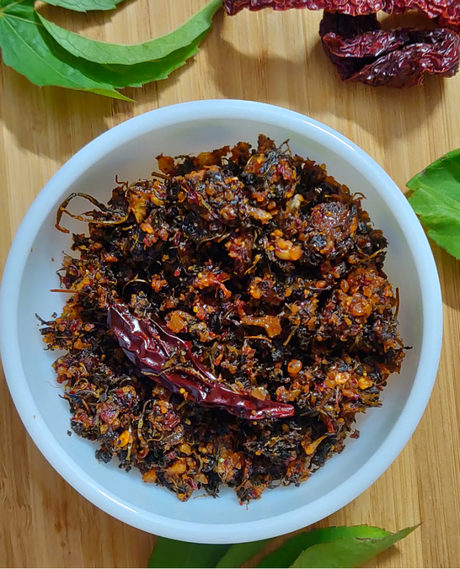
Notes:
- Adjust chillies per your taste, I used “Byadgi” red chillies.
- Jaggery is optional, you can omit it if you wish
- While roasting the leaves, there is a tendency for the leaves to clump together and the same happens even when you grind them. It happens due to moisture content that may be left over, that is fine. Just make sure you blend everything together well in the end.
- This pachadi has a dryish, crumbly texture unlike the store bought pickle/chutney that is super soft and quite oily.
Brinjal-gongura chutney
While the above pachadi can be stored for about a week or a little more, I also made another quick fix chutney that needs to be consumed fresh. The recipe is pretty simple.
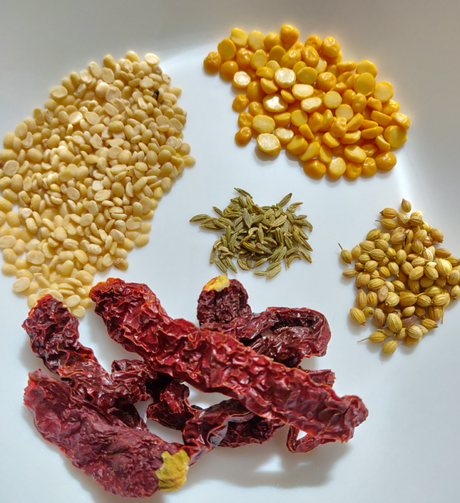
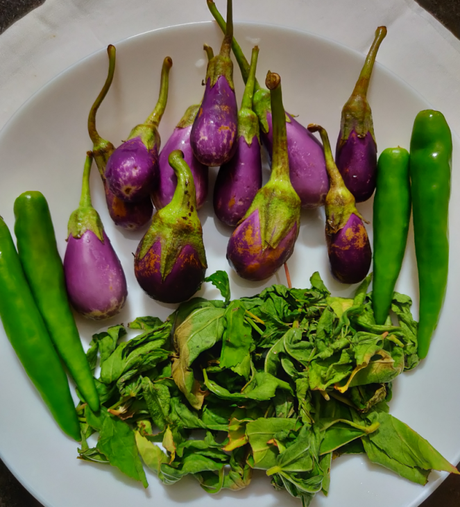
Ingredients
- Gongura leaves washed: 1 cup
- Small sized brinjal roughly chopped: 3-4
- Green chillies: 2-3
- Coriander seeds, cumin seeds, bengal gram, ural dal: 1 tsp
- For seasoning – Peeled garlic: 2-3, red chillies: 1-2 and mustard seeds: 1 tsp
- Oil: 2 tsp
- Salt to taste
Method
- Heat oil in a pan and add coriander seeds, cumin seeds, bengal gram, ural dal and fry a bit. Then add the brinjal, chillies and gongura.
- Cook until soft, cool and grind to a soft paste adding salt.
- Heat oil in a pan and mustard seeds. Once they splutter add red chillies, garlic and cook till brown; pour over the chutney.
- Tastes best with hot rice.
